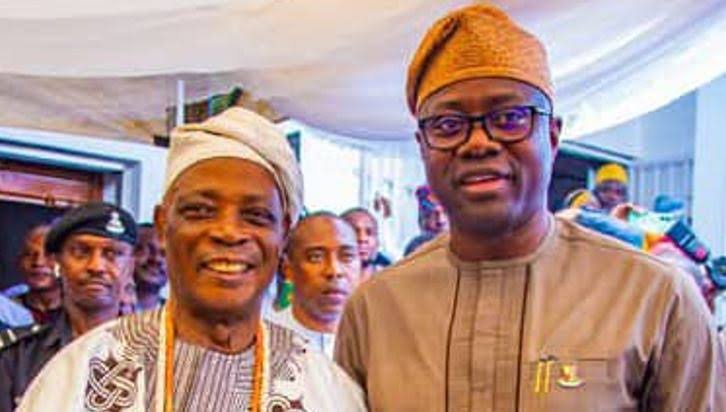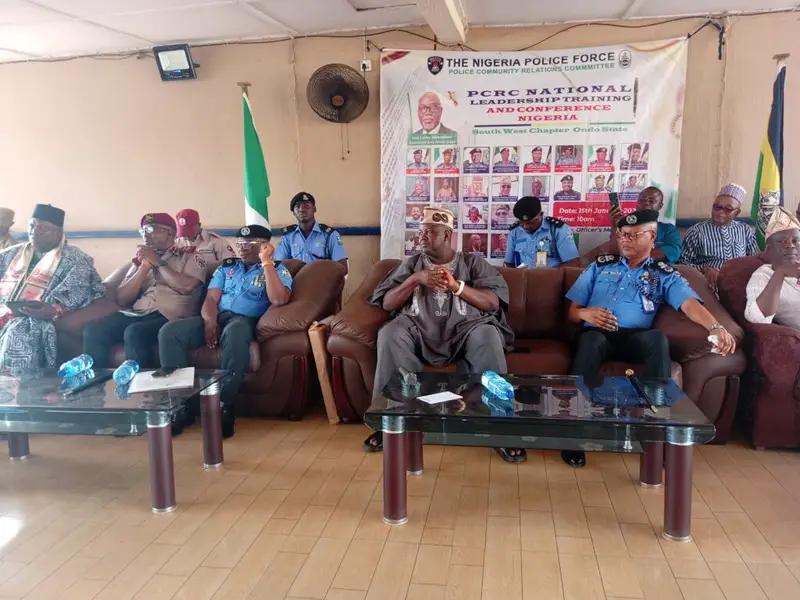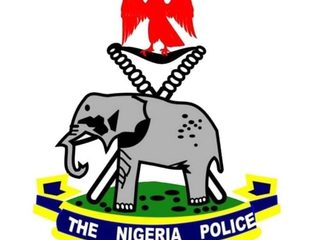
News Analysis: What does Donald Trump’s second coming mean for Africa?
News Analysis: What does Donald Trump’s second coming mean for Africa?
A news analysis by Kayode Adebiyi, News Agency of Nigeria (NAN)
What had been a hectic, rigorous and sometimes divisive campaign trail for months climaxed on Tuesday with former President Donald Trump winning the U.S. presidential election to become the country’s 47th president.
Trump defeated his main rival and current Vice-President, Kamala Harris, who herself was only thrown into the race in July following President Joe Biden’s pull out from the race due to health concerns.
Biden’s campaign in the presidential race for a second term came to an abrupt end after his and Trump’s first live TV debate in June.
The American president showed glaring signs of a lack of mental fitness – a condition capitalised on by his rival, Trump, who saw it as an opportunity for a weaker opponent.
After the debate, pressure began to mount from Democratic stalwarts – including former President Barack Obama – for Biden to withdraw and nominate his vice president as his replacement.
While the decision threw the party into unexplored territories, it galvanised the Democratic Party’s campaign, especially with Harris’ nomination of Gov. Tim Walz of Minnesota as her running mate in August.
Harris’ nomination and the choice of her running mate so energised Democrats and analysts that pollsters predicted a “blade line” close race.
However, the Republican flag bearer, now president-elect for the second time, Trump, picked up more general and electoral votes than expected and predicted.
By the time the polls closed and Trump was declared the winner, he had led Harris by over 72 million to 67 million general votes, and 294 to 226 electoral points as at the time of filing this report.
In terms of percentage, that’s 50.8 per cent votes won by Trump as against Harris’ 47.5 per cent.
Post-election political analysts have attributed Trump’s clear victory to two major factors.
First is Trump’s outstanding showing in the seven states widely identified as “swing states”: Michigan, Wisconsin and Pennsylvania (also known as the “Blue Wall”); and Nevada, Arizona, North Carolina and Georgia (referred to as “Sun Belt”).
These states are where neither candidate can call their strongholds in the presidential race and can swing between the candidates any election year, thereby extremely influencing results.
According to Forbes, “A majority of counties that swung Democratic for Joe Biden in 2020 flipped back to the Republicans in 2024.
“Trump increased his margin of support in rural sectors and Harris underperforming in Democratic-supporting areas.”
NPR’s Camila Domonoske’s post-election analysis showed that Trump already secured an excess of 292 electoral votes even before all the swing states’ results came in.
“With 19 electoral votes, Pennsylvania is widely seen as the most pivotal state in this election. Once Trump won it, the signs were there. Democrats’ strategy to ‘lose less’ in rural parts of the state backfired,” she said.
The second most significant factor in Trump’s victory is the demographics he was able to swing.
While he retained his core demographics – rural, white voters, white voters without college degrees, etc – he was able to make an incursion into traditionally Democratic territories.
“The Democratic Party used to get strong support from young voters, urban voters, black voters and Latino voters. Even with the threat of deportation, gained Latino voters,” an analyst said.
Forbes also made mention of the gains by Trump among demographics previously held by the Democrats.
“Even in demographics she won—like among women, Black men and young voters—Harris conceded votes to Trump and won by a narrower margin than Hillary Clinton did in 2016 or President Joe Biden did in 2020.”
“Kamal’s only won Latino voters by six points, a steep drop-off from Biden’s 33-point edge in 2020 and Clinton’s 38-point advantage eight years ago, according to exit poll data.
“Latino men gravitated toward Trump in greater numbers than ever before, with Trump winning the group by a 12-point margin, according to CNN exit polls.
“Biden won Latino men by 23 points in 2020 and Clinton won by 31 points in 2016.
“A majority of Latina women did vote for Harris, but she won the demographic by only 22 points, a major shift from the 39 points Biden won in 2020 and the 44-point Clinton advantage in 2016”, it said.
Some analysts say Trump’s ability to win votes from America’s minority groups was a surprise, considering how curbing migration and implementing mass deportation were the core of his campaign messaging.
“During his second televised debate, this time with Harris, he made very wild allegations about immigrants killing and eating people’s pets. As outrageous as they were, his base believed them.
“However, you don’t expect that minority groups who had majorly voted for the Democrats would believe such allegations,” an analyst said.
However, others believe that his promise of reviving the American economy – even if he didn’t state how – swayed minority votes Trump’s way.
Interestingly, both in the build-up to the election and its conclusion, countries around the world have been monitoring the situation closely.
Many African presidents, including Nigeria’s President Bola Tinubu, have congratulated Trump and said they look forward to cordial relationships with him.
Also, an analysis of media content shows that many in Africa preferred a Trump administration to Harris’, and the majority of ordinary people do so based on the ideologies of each candidate.
While Trump presented himself as a religious, conservative candidate who would stick to certain ideals in line with his faith, Harris made a strong case for abortion and LGBTQ+ rights.
But would that overwhelming support for Trump translate into a special place for Africa in Trump’s administration?
Some analysts said, judging by the antecedent, it is not likely.
They are quick to remind Africans that during his first term as president, Trump cut some funding, restricted immigration, and practically dismissed the continent.
“How can we forget him referring to some African nations – including Nigeria – as ‘shithole countries?’” an analyst asked.
One does not expect America’s president-elect to deviate much from how he ran his “America First” and ‘Make America Great Again” nationalist government the last time.
A BBC report said that, while the US government invested more than $22bn in Africa since Biden came to power, Trump’s administration could cut down on investment.
“The African Growth and Opportunity Act (AGOA), which has enabled eligible African countries to export some of their produce to the US without paying taxes since 2000, is a key source of concern.
“During his previous administration, Trump said the scheme would not be renewed when it expires in 2025,” the report said.
With an increased Russian influence in Africa and Trump said to be President Vladimir Putin’s admirer, it is also left to see how his presidency will respond to conflicts and security matters on the continent. (NANFeatures)
News
JUST IN; Oyo Governor, Makinde names Olubadan as Chairman Oyo Council of Obas

JUST IN; Oyo Governor, Makinde names Olubadan as Chairman Oyo Council of Obas
Oyo State Governor, Seyi Makinde, has inaugurated the Oyo State Council of Obas and Chiefs, declaring that the Olubadan of Ibadan, Oba Rashidi Ladoja, will be heading the council for a period of 2 years.
The declaration follows the passing of the Oyo State Council of Obas and Chiefs (Further Amendments) Bill, 2025, by the state House of Assembly, and the signing of the same into law by the governor.
Recall that the lawmakers had amended Clause 5 of Section 28 of the Chieftaincy Law to make the Council chairmanship rotational among the Alaafin of Oyo, the Soun of Ogbomoso, and the Olubadan of Ibadanland.
While inaugurating the Council, Governor Makinde said he had consulted with the trio of the Alaafin, the Olubadan and the Soun, with the three of them reaching a consensus that the chairmanship should start with the Olubadan of Ibadanland, His Imperial Majesty Oba Rashidi Ladoja.
News
NPF committed to community policing, says IGP Egbetokun

NPF committed to community policing, says IGP Egbetokun
The Inspector General of Police (I-GP), Dr Kayode Egbetokun, has assured that the police remained committed to community policing to ensure that criminals were drastically reduced in the country.
The I-GP, who was represented by the Assistant Inspector of Police ( AIG) Zone 17, Dr Ajani Musibau, stated this at the Police Community Relations Committee ( PCRC) National Leadership Training and Conference on Thursday in Akure.
The theme of the conference is: “Inclusivity and Diversity: the New Leadership Paradigm.”
He said that security could not be achieved by only the police, but with the support from the community.
The I-GP stated that security was a joint work and responsibility of all, commending the current leadership of the Nigeria Police for a paradigm shift towards modern policing.
Also, the Commissioner of Police in Ondo State, Mr Adebowale Lawal, said that bandits could not infiltrate the state due to community policing strategy embraced by the command.
He explained that bandits would have infiltrated the state through Kogi and Edo, but intelligence reports from members of PCRC had been a great help to the police command.
According to him, the support and logistics received from the Inspector General of Police, Dr Kayode Egbetokun and Gov. Lucky Aiyedatiwa had also motivated police personnel to work earnestly.
He said that effective community policing was a sure way to curb activities of criminals, and implored members of the public not to relent in their efforts to provide police and other security agencies with useful information.
Lawal also commended other conventional security agencies, forest guards and vigilantes for their support to the police in fighting bandits
In his remarks, the National Chairman of PCRC, Alhaji Ibrahim Mogaji said that the conference was to strengthen leaders of PCRC in the South-West zone and encourage them to redouble their efforts and support in fighting crimes.
According to Mogaji, the occasion also enabled the association to appreciate Gov. Aiyedatiwa, I-GP, the AIG Zone 17 and the state Commissioner of Police.
He advised the participants to moblise other members of PCRC and orientate them on their roles to continue to fight crime in the country.
The PCRC national chairman asked Nigerians to respect the dignity of police and to be civil when interacting with them.
Mogaji said that the leadership training would be replicated in other geo-political zones of the country.
Also, Aiyedatiwa, represented by his Senior Special Assistant on Security, Mr Gbenga Atiba, commended the PCRC , AIG Zone 17, and the Commissioner of Police for their unrelenting efforts to guarantee peace across the state.
Aiyedatiwa promised that the state government would give PCRC attention and continue to support police and other security agencies with appropriate logistics that would make policing more effective.
A guest lecturer, Comrade Yinka Folarin asked members of the public to give respect and dignity to members of the police, saying that they also had rights that must be respected.
The News Agency of Nigeria (NAN) reports that PCRC honoured Gov. Aiyedatiwa, AIG Zone 17 and the Commissioner of Police with awards. (NAN)
News
Increase salary, welfare packages for Police other security personnel – FG told

Increase salary, welfare packages for Police other security personnel – FG told
Peoples Democratic Party (PDP) has called for improved welfare packages for armed forces personnel and all members of the security and intelligence community to aid their effectiveness and efficiency.
National Chairman of PDP, Tanimu Turaki, made the call in a statement in Abuja on Thursday to mark the 2026 Armed Forces Celebration and Remembrance Day.
Turaki also urged the Federal Government to adequately fund security agencies to effectively neutralise those he described as agents of insecurity, and restore peace to the country.
He expressed PDP’s condolences to the families of members of the armed forces who died in active service while executing their mandate of protecting Nigeria’s territorial integrity and sovereignty.
“On a day like this, we acknowledge that they paid the supreme price for the continuous existence of our country.
“We advise all actors, whether state or non-state, not to engage in actions capable of destabilising the country.
“In honour of those who have died to keep our country safe, we pray that their deaths may not be in vain and their labours not forgotten,” Turaki said.(NAN)
-
6 years ago
Our situation in Kano terrible – Gov Ganduje cries out
-

 News11 months ago
News11 months agoFG pledges commitment to enhance Police officers Welfare, implement Tinubu’s 8-point agenda for NPF
-

 News11 months ago
News11 months agoBREAKING; NSCDC gets approval to commence 2025 recruitment exercise
-

 News9 months ago
News9 months agoAlleged cocaine deal: Court issues orders in suspended DCP Abba Kyari’s case
-

 News12 months ago
News12 months agoDPO under investigation for allegedly taking teenage girl to his home while in police custody
-

 News12 months ago
News12 months agoJUST IN; Commissioner of Police bows out of Service
-

 News9 months ago
News9 months agoJUST IN; Police Inspector dies watching Arsenal match
-

 News12 months ago
News12 months agoBREAKING; NLC declare nationwide protest


